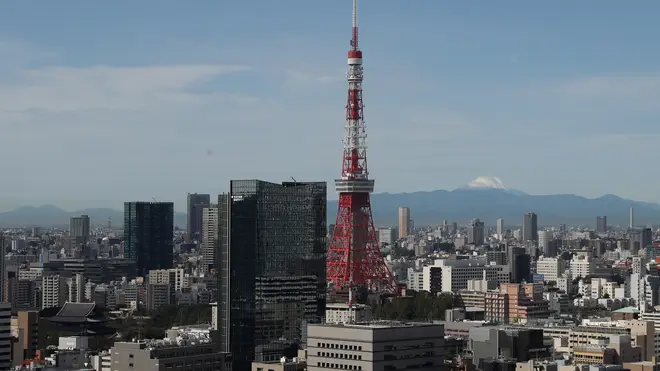
Nick Ferrari 7am - 10am
26 October 2020, 09:34

Yoshihide Suga made the pledge in a speech to parliament.
Japan will achieve zero carbon emissions by 2050, prime minister Yoshihide Suga declared, outlining an ambitious agenda as the country struggles to balance economic and pandemic concerns.
The policy speech at the outset of the parliamentary session was Mr Suga’s first since he took office on September 16 after his boss Shinzo Abe resigned over health reasons.
It reflects Mr Suga’s pragmatic approach to getting things done, though it’s unclear he will have the political heft needed to overcome vested interests in weaning this resource-scarce nation from its reliance on imports of oil and gas.
Mr Suga just returned from a trip last week to Vietnam and Indonesia, where he pushed ahead with Mr Abe’s efforts to build closer ties and promote a regional vision for countering growing Chinese influence.
Now out of Mr Abe’s shadow, back home Mr Suga has been pumping out consumer-friendly policies.

He has earned a reputation as a cost cutter.
He said he intends to make a sustainable economy a pillar of his growth strategy and “put maximum effort into achieving a green society”.
That includes achieving a carbon-free society by 2050.
The European Union and Britain have already set similar targets for net-zero greenhouse gas emissions, and China recently announced it would become carbon-free by 2060.
Japan previously targeted a 80% reduction by 2050.
Mr Suga portrayed the need to shift away from fossil fuels to counter climate change as an opportunity rather than a burden.
“Global warming measures are no longer obstacles for economic growth, but would lead to industrial and socio-economic reforms and a major growth,” he said.
“We need to change our mindset.”

Japan’s current energy plan, set in 2018, calls for 22-24% of its energy to come from renewables, 20-22% from nuclear power and 56% from fossil fuels such as oil, coal and gas.
Progress towards reducing reliance on fossil fuels has been hindered due to the prolonged closures of most of Japan’s nuclear plants after the meltdown of the Fukushima Dai-Ichi plant due to the 2011 earthquake and tsunami in the northeastern Tohoku region.
Energy experts are now discussing revisions to Japan’s basic energy plan for 2030 and 2050.
The 2050 emissions-free target would require drastic changes and likely prompt calls for more nuclear plant restarts.
About 40% of Japan’s carbon emissions come from power companies, and they must use more renewable sources of energy while stepping up development of technologies using hydrogen, ammonia and other carbon-free resources, experts say.
Mr Suga said he will speed up research and development of key technologies such as next generation solar batteries and carbon recycling.
He also promised to reduce Japan’s reliance on coal-fired energy by promoting conservation and maximising renewables, while promoting nuclear energy.